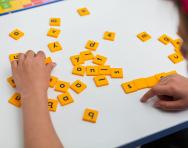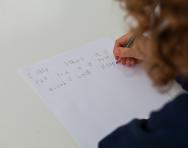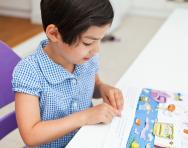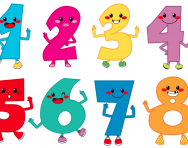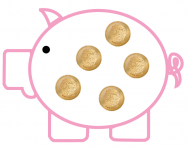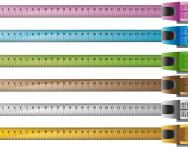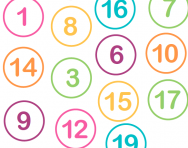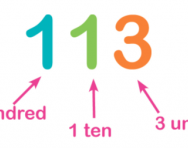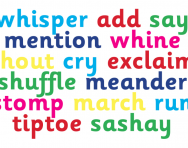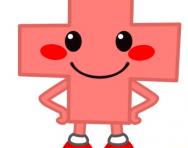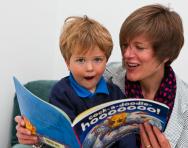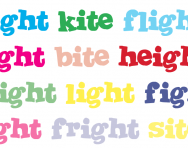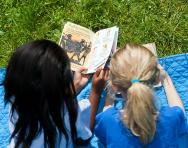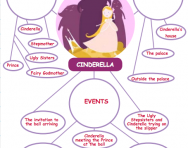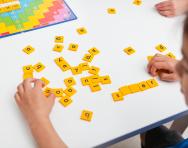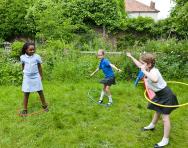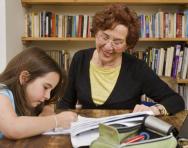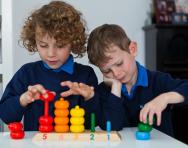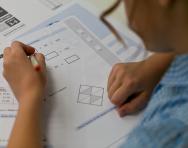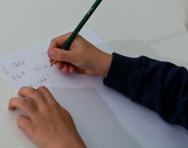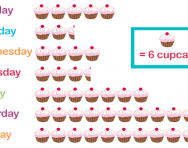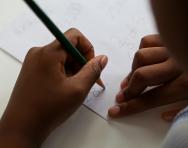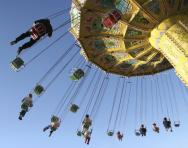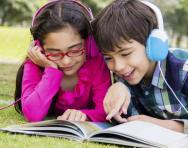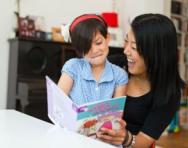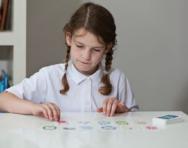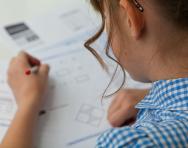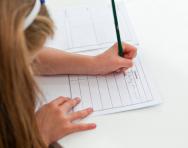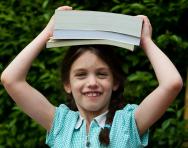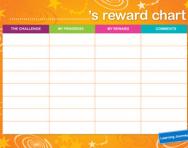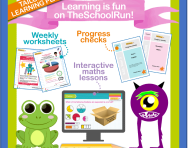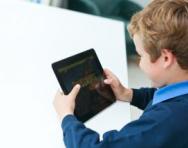Reception articles
10 ways word puzzles can help your child
Crosswords, word searches and hangman aren’t just handy ways to keep your child quiet for five minutes; they could also boost their learning in some surprising ways. Here’s how…
Best time-teaching products
Great toys, books and resources to help your child learn to tell the time on analogue and digital timepieces, from clock face recognition to estimating time differences on the 24-hour clock.
What is a free school?
How do free schools differ from standard primary schools? How do they operate and what do they teach? If you’re thinking of sending your child to a free school, or just want to know more about them, here’s a brief parents' guide.
Common handwriting problems and solutions
Illegible handwriting? Huge letters? Strange pencil grip? Struggles with left-handed writing? If your child is finding handwriting hard, perhaps it’s one of these four issues. Find out more about how to tackle these common problems with advice from the National Handwriting Association's Angela Webb.
Starting school: keeping up the momentum in Reception year
So they’ve flown the nest... well, until the school run that is! Primary-school teacher (and parent of a Reception child) Phoebe Doyle offers some advice on keeping motivation maxed and avoiding tears during this most crucial of school years.
Holidays in term time: the parents’ guide
Once your child is at full-time school, cheap term-time holidays become a thing of the past. But who sets school term dates, and is taking your child out of school for a family break really a big no-no? TheSchoolRun explains.
5 number and counting skills primary-school children need
Numbers are all around us, almost from birth! Teacher Phoebe Doyle looks at counting, a fundamental aspect of mathematical understanding, to help your child grab the basics (without confusion!) from day one.
Teachers' tricks for shape, space and geometry
Throughout primary school children learn about the properties of the shapes in the world around them (primary geometry, in other words). Phoebe Doyle offers some insiders’ tips on helping them master shape and space maths targets.
Teachers' tricks for money maths
Money is the ultimate ‘real-life’ maths resource. Here's how to make the most of this tool to improve your child's maths learning at home.
Teachers' tricks for weights and measures
Weights and measures can be a really fun area of maths to teach in school – but one that can leave parents unsure of how to help at home. Teacher Phoebe Doyle has some hints and suggestions.
What are number bonds?
If your child is in Key Stage 1, chances are they'll have told you they're learning 'number bonds'... but what are they? Teacher Alice Hart explains why children are taught these number pairs, and how you can help your child practise them at home.
What is place value?
A good understanding of place value (the value of each digit in a number) is vital in primary-school maths. Our parents' guide explains how your child will be taught about units, tens, hundreds and thousands with number lines, arrow cards and more, as well as outlining how place value is used to help children visualise calculations.
What are powerful verbs?
Using powerful, descriptive verbs can make a big difference to your child's writing. We explain what parents need to know about powerful verbs (and ordinary verbs!) when helping with primary-school homework.
Teachers' tricks for addition
Help your child with their addition work, from the basics in Reception to calculations in KS1 and KS2, with some teachers' tricks to help the learning stick.
Foundation stage assessment levels explained
Struggling to make sense of your Nursery or Reception child’s school report? We explain how to decode those baffling assessment levels.
What is rhyme?
From reading rhyming poems to identifying rhyme schemes and rhyming couplets, we explain everything you need to know to help you support your child's love and learning of poetry at home.
What is non-fiction?
Non-fiction texts are read, studied and written throughout the primary-school years. Our parents' guide covers instruction texts, recounts, information and explanation texts, persuasive writing and argument texts and explains what you need to know to support your child.
What is a spider diagram?
Spider diagrams are common planning tools in the primary-school classroom, used in science as well as literacy. We explain what you need to know to help your child use a spider diagram when preparing a fiction or non-fiction piece of writing.
The parents’ guide to after-school childcare: out-of-school clubs
Convenient and cost-effective, out-of-school clubs can be a good solution to the before- and after-school childcare dilemma. So what do you need to know before you sign up?
The parents’ guide to after-school childcare: childminders
With a home-from-home environment and smaller numbers than an after-school club, childminders are a popular choice for after-school childcare. Here’s what you need to know.
The parents’ guide to after-school childcare: relatives
Getting a grandparent or other family member to provide after-school childcare can be a dream come true – or a bit of a nightmare. Lucy Dimbylow looks at the pros, cons and practicalities.
What is an academy?
More and more primary schools in England are converting to academy status. If your child’s school is planning to make the transition, what could it mean for them?
Does my child have dyscalculia?
What are the signs to look out for if you think your child might have dyscalculia or 'number blindness', and what can be done to help?
7 strategies to help defeat children’s fear of maths
What does it mean if your child has a fear of maths, and what can you do to help them get over it? TheSchoolRun offers a step-by-step plan to help you boost your child's confidence – and your own.
Dyspraxia: parents' questions answered
Dyspraxia, or Developmental Co-ordination Disorder (DCD), causes problems with language, perception and thought – most specifically issues with co-ordination. Around one in seven children has this learning difficulty and if your child is affected it can be hard to know how to help for the best. Here we answer some of the most common questions parents ask.
What is a pictogram?
Pictograms are introduced in Year 2 as a simple and engaging introduction to bar charts. We explain what your child needs to know about pictograms and how to read and create them, as well as explaining when and how they're taught.
Your child's new school year preparation plan
Each year group brings fresh challenges in literacy and numeracy. Want to give your child a head start? Primary teacher Phoebe Doyle offers some easy-to-action advice on tackling an objective from the year group your child is about to enter during the summer break.
Holiday learning in theme parks, museums and on the move
Holidays are anything but an education-free-zone says Phoebe Doyle, teacher and mum. Make the most of your children's experiences outside the classroom by turning them into literacy and numeracy learning adventures.
Listen and learn: why audiobooks are great for your child
Whether your child is a voracious reader or is horrified at the suggestion of picking up a book, audiobooks could have some surprising benefits. Lucy Dimbylow explains how they could boost literacy skills, and shares our pick of the best to get you started.
Learning tips for kinaesthetic learners
To you, they might look like a fidget, but your child’s restlessness could actually be helping them learn. Find out more about the theory of kinaesthetic learners and how learning styles might be discussed during your child's time at primary school.
How to help your auditory learner
If your child prefers reading aloud, is always talking to themselves and provides a running commentary of everything they do, they could be an auditory learner. We explain what the learning styles theory suggests and why you might hear about t during your child's time at primary school.
Is your child a visual learner?
Does your child have an obsession with highlighters, or spend hours looking at YouTube videos about their latest class topic? They might be a visual learner. Read our guide to the theory of learning styles and how it might be mentioned during your child's time at primary school.
What are national curriculum levels?
In the past, primary school children taking SATs were given their results as a National Curriculum level. But what did these numbers actually mean? Lucy Dimbylow explains the grading system used in primary schools until September 2014 in parent-friendly language.
21 things every parent needs to know about cursive handwriting
Learning to print letters was hard enough, and now your child is being encouraged to join them up. Lucy Dimbylow explains everything you need to know about cursive writing, and how you can support your child at home.
5 ways to raise an enterprising child
As parents we have a vital role to play in inspiring an enterprising attitude in our children, nurturing characteristics from an early age which will help them grow into happy adults. Lorraine Allman shares some easy, practical tips to help boost children's self-belief and confidence.
6 steps to a money-savvy child
We all want our kids to have the very best future, and ensuring they’ve got money sense is crucial to help make it happen. Mum-of-two and financial whizz Emily Richards shares a few down-to-earth strategies to equip your child with money management skills for life.
The Learning Journey reward chart and certificates
Support your child's Learning Journey with these fantastic motivational resources – a colourful reward chart where you can set your own challenges and choose rewards together, and printable certificates to celebrate success.
How the Learning Journey works
Find out how our fantastic primary school learning programme – The Learning Journey – could benefit you and your child as well as full details of how to use the reward charts and certificates!
Best children’s tablets
Learning through play is digital now, with apps and games teaching everything from phonics to times tables and basic physics. If you’re planning to invest in a children’s tablet packed with educational potential, read our guide first – we asked two computer-savvy parents and six children to put some of the most popular through their paces.
Best children’s books about Christmas
Get into the festive spirit with some Christmas-themed bedtime stories – perfect to snuggle up to in front of the tree, sipping mulled wine (you) and hot chocolate (them). From wintery classics to new favourites about Father Christmas and his life in the North Pole, this reading list is suitable for all ages.
